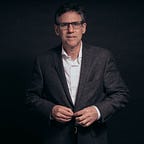Who Is Morris Chang, and Why Does Everyone Want to Be Him?
The cutthroat battery war between the U.S., China, and Europe is all about emulating the unsung king of silicon chips
When revolution swallowed China in 1949, the United States admitted a few thousand people who took flight. Among them was an aspiring 18-year-old writer named Zhang Zhongmou, who, leaving his parents behind, landed in Boston, where he had an uncle. Four years later, Zhang graduated from MIT, though not with a writing pedigree. He instead left the school with bachelor’s and master’s degrees in mechanical engineering — and a new name: Morris Chang.
So would begin a meteoric rise: Chang was hired by Texas Instruments, where, displaying an unusual flair with transistors, he was put on a fast track. As Texas Instruments grew into the world’s largest manufacturer of integrated circuits, Chang was promoted up the ranks until he was a senior vice president, a step away from CEO. Then, abruptly, he was sidelined: A product line he had overseen had produced disappointing results, and that was it. Chang quit. Soon, a risky invitation arrived. The prime minister of Taiwan beseeched Chang to return to Asia and help to create a local version of Bell Labs, the legendary, Nobel Prize-winning research-and-products division of AT&T. Three and a…
